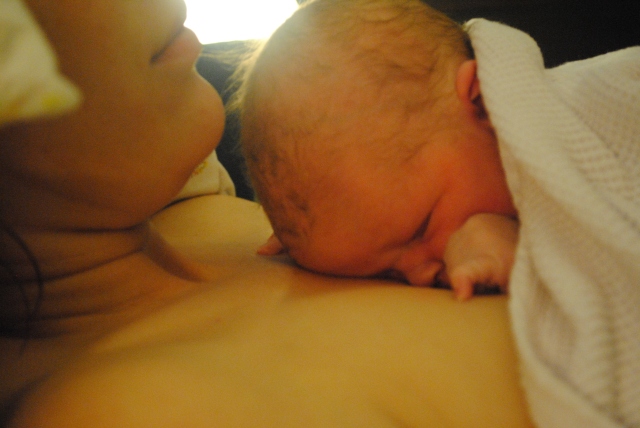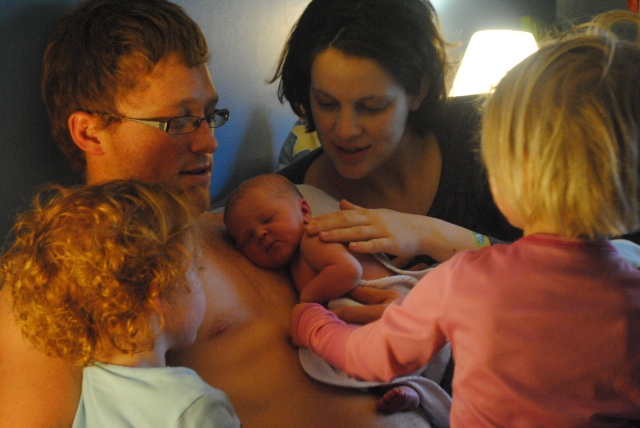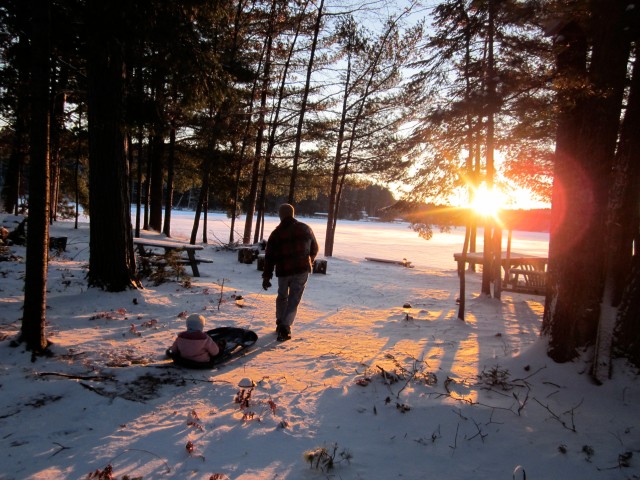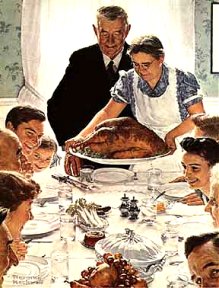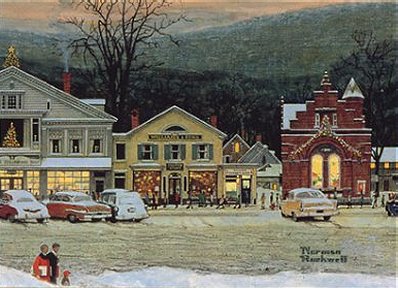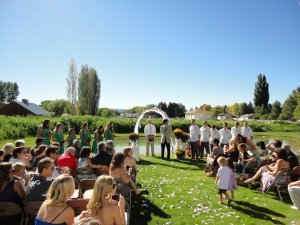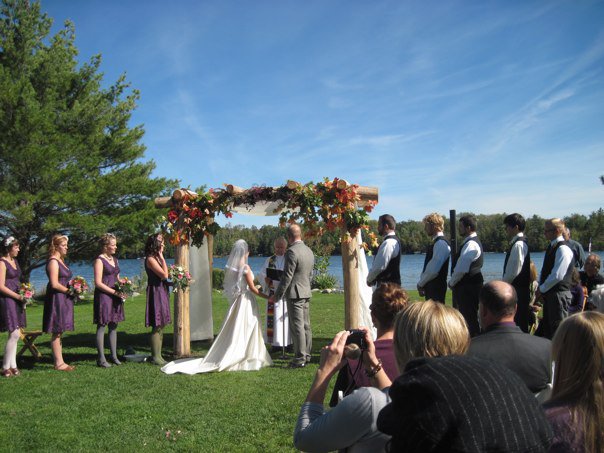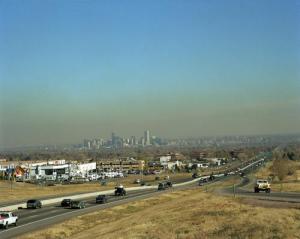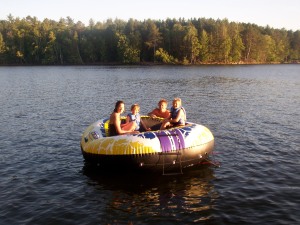Prolegomena: This whole ordeal has very little to do with the First Amendment. Freedom of Speech refers to the government’s role in censorship. Phil should be able to say what he believes as he speaks from his own ideology and experience, and A&E should be able to suspend him if they believe it’s in their company’s best interest.
Next, the Robertsons will be just fine. I don’t write this because I feel any pressure to defend Phil. (Nor do I think he feels he needs defending, as if he’s a martyr or a victim of persecution in some significant way). In fact, I think the whole idea that a gritty, backwoods, wildman needs the conservative masses to come to his defense from the so-called “liberal media” is kind of laughable. It seems he’d be happy to get back to whatever redneck life he lived before any of this went down.
But after observing numerous Facebook threads, and reading several articles both attacking and defending Phil (including the original GQ story), I do believe there are some significant things at stake.
First, I want to make it clear that whether or not I agree with Phil about any of the things he said, I can be certain that I would not have said things the way he said them. Anytime a Christian is going to articulate a belief, especially one dealing with an issue as charged as sexuality, it’s important we choose our words carefully. The particularities of any religious belief system or ideology can be divisive and yes, even offensive. But it’s important that one doesn’t add to that offense by being unnecessarily crude or shocking. Perhaps part of what made Phil’s remarks so inflammatory was that he seemed somewhat flippant, and I can understand how that was off-putting. However, many of the things he said would have angered people no matter how he said them (Are we not aware that ideological differences exist in this country?).
However, certainly much of Phil’s discourse was simply his iteration of what he believes to be orthodox teachings of the Christian faith, and while many today do not identify with that version of Christianity, to deny that it represents a widely held and historically orthodox interpretation of Scripture is to be dishonest to one’s faith tradition. This article in a “liberal” media outlet (The Atlantic) makes a cogent point, and it’s an important read for liberals and conservatives alike. Here’s the thrust:
Instead of acknowledging this tension, however, A&E, GLAAD, and their supporters have responded with disingenuous expressions of shock and horror. And it matters that it’s disingenuous, because if they actually acknowledged that there is a genuine conflict between orthodox Christianity and homosexual sex (along with several forms of heterosexual sex) they would have to confront head-on the fact that calling for a boycott or pressuring for Robertson’s suspension tells orthodox Christians that their religion is no longer acceptable, and that’s not a very politically correct thing to do. Right now, they are trying to weasel out of it by characterizing Robertson as a backwoods bigot who takes his moral cues from Deliverance rather than from a straightforward reading of the Bible and the historic teachings of the Christian religion.
Phil did not articulate a marginal or fringe view of sexuality that can be dismissed as lunacy. Let’s just be honest about that.
Furthermore, as many have pointed out, Phil’s comments on sexuality were not the only things that contributed to the firestorm. The GQ story also quoted Phil on his experience in the Deep South during the Jim Crow era. Now, I’ve come to realize that there’s an experience and narrative about race in the Deep South that I know nothing about. I’ve heard from persons of color and white folks alike that if you’re not from the South, then there are things you just simply won’t “get.” It seems Phil’s comments belong to that world, so I’ll leave judgment to those who might actually have a clue what he’s talking about.
But to that point, Phil’s comments aren’t too unlike something eminent bioethicist Leon Kass discovered during his time in Mississippi in 1965, from which he reflects: “I came back from this place with this conundrum: Why was there more honor, goodness and decency in these unschooled black farmers than I found in my fellow graduate students at Harvard, whose enlightened and liberal opinions I shared?” See link.
Nevertheless, I see how Phil’s interpretation of race relations in that time shows a lack of awareness for the wider context of race in America, and his off-hand dismissal of racial struggle today was, again, not helpful. But here’s the rub, this whole situation has highlighted a dangerous reality about the way we disregard each other nowadays: We are at a point where if someone contributes to a conversation and shows themselves to be under-nuanced, ignorant, or old-school in some way, then we can rightly brand them a bigot, a racist, a homophobe, a wolf in camo-clothing, etc.
I constantly see this among my peers, many of whom were colleagues in college and graduate school or are now working in ministry or higher-ed. Congratulations to all of us! We learned the language of social justice and reconciliation while at school. We learned to be critical of evangelicalism and conservative politics, and we now get to show the world how educated, diplomatic, and socially aware we are! We are privileged to use words like “privilege” and “systemic injustice.” And because of this, we get to stand at the Temple gates, thanking God we are not like those ignorant, backwoods, bigoted sinners.
I hope we see the irony in all of this. Not only does it betray the values we allegedly espouse (but isn’t this justified, for the oppressive patriarchy does not fall under the category of enemies I might be called to love?), but it is also essentially a power ploy – precisely the kind of power we are called to lay down – power that can silence and marginalize those we might classify as “other.”
I’m speaking to my generation, my peers here. If we haven’t noticed, among other young, educated, so-called post-evangelical Christians, the social and professional rewards for being progressive, moderate, or even simply well-spoken, are now greater than those of regular conservatives (I speak from my own observations here, where I see far more “likes” and cyber pats-on-the-back when someone asserts a progressive ideal as opposed to a traditional one. And certainly the rewards in higher-ed slant progressive, except in the case of ultra-conservative private institutions). What was once cutting edge, emergent, daringly critical Christianity is now the status quo for millenials. I withhold judgment about whether that’s good or bad, but we do need to be honest about the power dynamics now in play, and thus dialogue responsibly and respectfully. Being harsh and dismissive towards conservatives in the name of “justice and concern for the marginalized” is still harsh and dismissive – and it conveys the same spirit and tone of those who dismiss the poor, or the gay, or the immigrant, etc.
To me, that’s what’s at stake. In Miraslov Volf’s Exclusion and Embrace he makes the point that there’s very little that keeps marginalized groups from becoming just like their former oppressors once the power has shifted. If we are not aware of that dangerous tendency within ourselves, and if we haven’t honestly asked Christ to make space within ourselves for receiving the other, then our cycles of judgment, marginalization, and exclusion will continue. Currently, it seems we’re cool with that.
